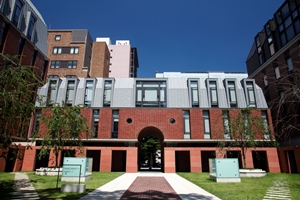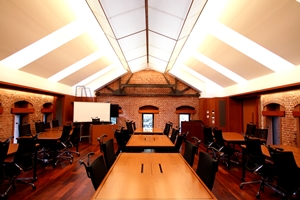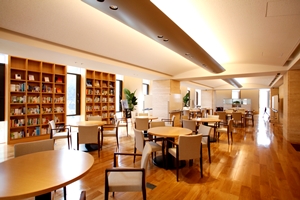Program
Program Outline
Following is an outline of the Todai EMP.
- Offered twice a year (Autumn term and Spring term), beginning in October and April, respectively
- Held twice weekly on Friday and Saturday (all day), for 20 weeks, excluding summer and winter holidays
- A non-degree program targeting working adults. All participants meeting the prescribed conditions are issued a course completion certificate
- During the orientation period (the first five days, excluding Sunday and Tuesday), participants work to get to know each other very well and build deep relationships through team activities
- A practical management capability training program incorporating cutting-edge knowledge, and based on historically refined and expansive learning
- Participants are mainly corporate employees and also include bureaucrats and professionals, and other outstanding individuals in their forties. There are approximately 25 participants
- Classes are held in both Japanese and English, with about 10-15 percent expected to be in English
Program Structure
The Todai EMP faculty is formed around professors, mainly from the University of Tokyo, and professionals, such as management consultants and lawyers. It also includes managers active on the leading edge, world leaders who visit the University of Tokyo, and other appropriate individuals. Through the collaboration of this faculty, it provides deep insight and learning, and management knowledge encompassing structured advanced knowledge. The program also includes the improvement of communication capability as a supporting skill.

Multifaceted Structure of the Program
Program Details
1)Deep Insight and Learning
Deep Insight and Learning, which is fundamental, encourages participants to establish their own axes by thinking from a broad viewpoint beyond the values of their organizations and by expressing themselves in their own words. These lectures launch discussions that, while stemming from to today’s central issues and the main issues surrounding them, as well as issues within those main issues, also go beyond the vertical confines of specific fields.

Agenda Shaping: Deep Insight and Learning
2)Management Knowledge
Management Knowledge, as a field actually involved in the management of corporations and a variety of organizations, focuses on the latest events about which it is necessary to possess fundamental knowledge. While gaining an overall perspective on themes in management, participants can learn about fields where they lacked understanding, and identify their blind spots.
3)Communication Skills
The program reconfirms the importance of increasing multifaceted communication capability as a platform that supports the above, and provides fundamental training. With regard to English, it offers, when required, individual training from an external provider that includes not only improvement in current ability, but also practical training that enables participants to express approximately 70 percent of what they want to say using their present ability.
4)Todai EMP Salon
The Todai EMP Salon offers participants the opportunity to chat informally with specialists in the Arts, Culture, Education, and other fields not covered in the "Deep Insight and Learning" and "Management Knowledge" program. (Usually once a month on Friday evening)
5)Lecture Contents
The contents of the eighth round program will be as follows. Approximately 80% of lectures focus on "Deep Insight and Learning."
| Lecture contents | |
|---|---|
| Deep insight and learning |
|
| Management knowledge |
|
| Communication skills |
|
| EMP Salon |
|
Location of Todai EMP Lectures

Ito International Research Center
Most lectures will be on the Hongo Campus of The University of Tokyo (Ito International Research Center), although other facilities belonging to The University will also be utilized (Komaba Campus, Kashiwa Campus, Yayoi Campus, etc.).

(3rd floor of Ito International Research Center)

(2nd floor of Ito International Research Center)